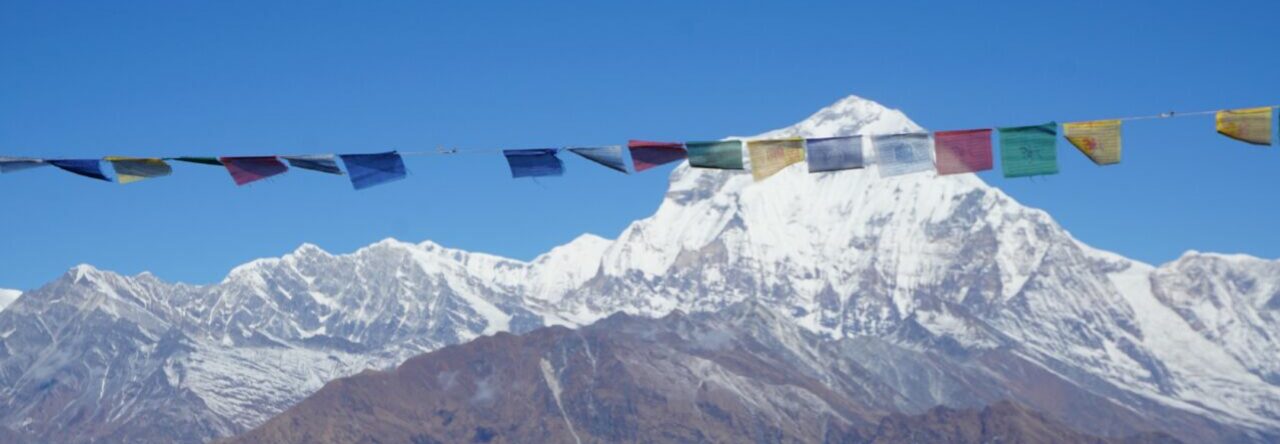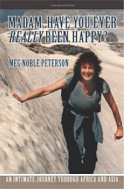There’s a great deal of talk these days about the overbearing, albeit well-meaning, NGO that sweeps into a country, defines its needs, and prescribes a solution–usually what’s best for the country from the point of view of the West. A solution from the top down. In contrast, I’ve just discovered one that works from the bottom up…a real grass roots endeavor with plans and programs initiated by three Nepalese villages and administered by a Nepalese staff. I hardly dare interject the work done by its founder, Dr. Richard Keidan, an oncologist from Detroit, MI, who has not one, but two NGO’s to his credit. He was adamant that I understand that the initial ideas and planning come directly from the Nepalese people. I’ll let you fill in the blanks by going to his website: www.Detroit2Nepal.org
I had the privilege of meeting Dr. Keidan this week and he gave me an overview of the public health needs in the vast majority of small towns and villages in Nepal, and the woeful lack of hospitals and qualified doctors to treat anything but minor ailments. But this hasn’t dampened his enthusiasm; it has only heightened his desire to help.
Richard’s love affair with Nepal began in the ’80’s as a trekker, and really flourished after he met Namgyal Sherpa, the sirdar (lead guide) on the Kangchenjunga trip he took in 2009. The following summer Namgyal took him to his home area of Khotang and he observed the compromised state of public health, health care, and education in the villages. This is when D2N was born! Namgyal, himself, had been instrumental in starting educational projects and working with underprivileged children in his village. He introduced D2N to the traditions in the area and was on the ground floor of its organization. Tragically, Namgyal was killed on one of his many descents from the summit of Mt. Everest last May, a tremendous loss to the people of Khotang and to the NGO he helped to inspire.
Richard spends a total of three months a year in Khotang, which he reaches by a one-hour plane ride, followed by three days of hiking to reach the first of three villages. He spoke glowingly of standing on a hillside on his last visit, looking down at the houses, each with a new cement outhouse (a sustainable toilet with septic system), its metal roof sparkling in the sun. “Can you imagine how great that makes you feel” he said, “to see what these people have done for themselves in such a short time?” This was the Dipsung toilet project, planned and executed by the Nepalese, themselves. They realized that until they had a safe sanitation system they would never have clean water, and most of their diseases stemmed from this pervasive problem. You can read on the website about the many other health and educational initiatives planned and carried out by the villagers and supported and funded by the dedicated work of this unique, caring man, Richard Keidan. Here is a case where there is no overhead and every dollar given by individuals or organizations goes directly to the projects that improve the health and well-being of Nepalese families. And an added advantage of this kind of community endeavor is the jobs it creates for the many people involved in the planning and executing of each project.


Judy Wyman Kelly
wonderful project! wonderful write up!
Ruth Abel
Hi Meg, That’s why I support APECA, it works the same way solving the needs expressed by the people in Peru. I hope your knee is doing better.
Cheers, Ruth
Richard Small
Character has been defined (by Churchill or someone like him) as what someone does when it’s not convenient to do so. You can add Dr. Keidan to that definition. His passion for and commitment to less fortunate people who have no real advocate, infrastructure or funding and his work for them on their terms is, unfortunately, unique. We are lucky to have him in our midst, as are the Nepalese on the other side of the world. I feel fortunate to consider Richard a friend.
Respectfully, Richard Small
Peter E.M. Beach,new email [email protected]
Meg,
So glad you are better and that Cary had a great climb. Safe journey back to India.
Love
Peter
PETER ROSTENBERG
I just read Jessica Alexander’s CHASING CHAOS about her experiences as an aid worker in some of the world’s worst trouble spots…Rwanda, Ethiopia, Sudan, for example. She came back, obtained her PhD, and now works at evaluating aid programs. Bottom line in most cases: send money.
Global health is big now, with our hospital network (Western CT Healthcare Network) receiving doctors from all over the world to work at our institution for a year or two. Many Yale med students travel to third world countries to see the illnesses of severe poverty, malnutrition and ignorance. I hear they come back changed, with new understanding and empathy.